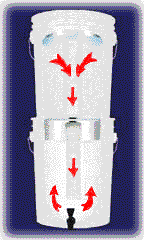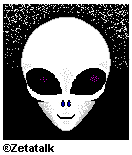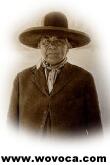"We do many things at the federal level that would be considered dishonest
and illegal if done in the private sector."
Donald T. Regan, New York Times, August 25, 1988
Background
On October 5, 1986, a US cargo plane was shot down over southern Nicaragua.
Two of the crew members died in the crash, but the third, Eugene Hasenfus,
parachuted to safety and was captured by the Sandinista army. Led out of
the jungle at gunpoint, Hasenfus’s very existence set in motion an
incredible chain of coverups and lies that would mushroom into one of the
biggest scandals in American political history. (How quickly people forget...)
Loosely known as the Iran-Contra affair, a bizarre network of arms sales
to Iran designed to win release of US hostages being held in Lebanon and
raise money to fund the Nicaraguan Contras, the botched enterprise took years
to unravel, threatening both the Reagan and Bush presidencies in the process.
The highlight of the Iran-Contra affair came on May 5, 1987, when Congress
began televised hearings into the matter that kept Americans riveted to their
TV sets for weeks. The hearings made household names of bureaucrats such
as Oliver North, Richard Secord, John Poindexter, Robert McFarlane, and Elliott
Abrams, and flushed out colorful bit players such as Washington secretary
Fawn Hall, Iranian businessman Albert Hakim, and Saudi billionaire Adnan
Khashoggi. But if the truth proved hard to ascertain -- thanks in large part
to the illegal shredding of key documents by North and his staff -- the hearings
did expose huge tracts of the US government as weak and unprincipled,
contributing to the nation’s growing distrust in the political process
by the early 1990s.
Convictions were rare in the Iran-Contra affair (North’s and
Poindexter’s were overturned on appeal), and the few verdicts that were
handed down in court amounted to little more than slaps on the wrist. On
December 24, 1992, outgoing president George Bush pardoned former secretary
of defense Caspar Weinberger and five other defendants, asserting that it
was "time for the country to move on." But independent counsel Lawrence Walsh,
who spent more than seven years and $40 million unraveling the scandal and
issued his own report on it in January 1994, saw it differently. "The Iran-Contra
coverup," he said, "... has now been completed."
The Iran-Contra affair was the direct result of two major dilemmas facing
the Reagan administration in the early 1980s: (1) how to fund, train, and
arm an army of Nicaraguan exiles (known as Contras) to overthrow the socialist
Sandinista government, especially after the US Congress made it illegal to
do so in 1982, and (2) how to win release of American hostages being held
by Islamic radicals in Beirut.
Although the CIA was originally authorized to oversee the Contras’ efforts
in 1981, and CIA director William Casey embraced the mission wholeheartedly,
Congress passed legislation two years later ordering the CIA to pull out.
The so-called Boland Amendment made it illegal for the CIA either to aid
the Contras or to provoke a war between Nicaragua and Honduras, and was toughened
to include ALL sectors of the US government with the passage of the Boland
Amendment II in 1984. But by that time, responsibility for supporting the
Contras’ campaign had been shifted from the CIA to the National Security
Council (NSC), where it wound up on the desk of Oliver North, the deputy-director
for political-military affairs. A decorated Vietnam veteran with little or
no regard for the law, North quickly established a vast and secret military
supply system that employed retired CIA and Defense Department personnel,
mercenaries, terrorists, and foreign saboteurs. Yet North never acted alone.
In addition to revealing the mentorlike guidance of William Casey, declassified
documents make it clear that knowledge, and in some cases direct approval,
of the Contra-support effort existed in virtually every wing of the Reagan
White House, including the Oval Office itself.
As the Nicaraguan civil war raged on, the Reagan administration became
increasingly preoccupied with the growing number of Americans kidnapped in
Lebanon. When Iran -- a nation that held 52 Americans hostage from 1979-1981
-- offered to use its influence to negotiate the release of the hostages
in Beirut in exchange for the opportunity to buy US weapons, Reagan’s
men agreed. The fact that Israel, a country reviled by most militant Muslims,
agreed to serve as the go-between in the arms sales only adds to the strange
nature of the deal.
Unfortunately, North, who assumed command of the arms sales in late August
or early September 1985, and McFarlane, who helped him, turned out to be
naive bumblers who were no match for the wily Iranian negotiators. Every
time a US hostage was released, another was taken. Meanwhile, North
cross-pollinated the Contra and Iran initiatives. By artificially inflating
the prices of the arms, North was able to reap profits that could be diverted
to funding the Contras. The arms shipments lasted from August 20, 1985 to
October 28, 1988, and a total of more than 2,000 missiles and spare parts
were shipped to Iran. But of the $16.1 million in profits raised, only $3.8
million ever went to the Contras. The rest was used to purchase equipment,
such as a cargo freighter, that could be used in future unspecified operations.
But when the plane carrying Hasenfus was shot down -- and Hasenfus told his
captors he believed he was working on a CIA-sanctioned operation, identifying
two other operatives by their code names in the process -- the entire Iran-Contra
scheme quickly collapsed. Vice President George Bush’s office was informed
that a plane was missing just hours after Hasenfus was taken prisoner, and
a CIA station chief in Costa Rica quickly followed with a coded message that
warned the "situation requires we do necessary damage control."
In the case of North and other officials at the NSC, that meant shredding
incriminating notes and documents and falsifying others to provide cover
-- but not before President Ronald Reagan and Attorney General Edwin Meese
went on national television, at noon on November 25, 1986, to report the
"discovery" of these interrelated Iran and Contra operations and attempt
to pin as much of the blame on North as possible. One hour later North was
fired and his boss, NSC adviser John Poindexter, was allowed to resign.
A "blue-ribbon" panel headed by former US senator John Tower was appointed
to investigate the Iran-Contra affair; it issued its final report on February
26, 1987. But while generally scolding President Reagan for his "hands-off
management style," the report proved cursory and unwilling to tackle the
scandal head-on. The televised congressional hearings that followed the Tower
Commission made a temporary national hero (?!?) of North and revealed the
entire investigation as flawed. In order to obtain the testimony of key players
such as North and Poindexter, Congress granted them immunity, undermining
the ability of Lawrence Walsh, the independent counsel, to successfully prosecute
them afterward.
Key Witnesses and Testimony
Although most Americans struggled to comprehend the complex network of arms
sales and Contra resupply that North and his associates had created, the
joint House and Senate Iran-Contra hearings were nonetheless entertaining.
Beginning May 5, 1987, and lasting until August 6, 1987, they featured more
than 250 hours of testimony from 32 witnesses. If no bombshells were dropped
by either the witnesses or the lawmakers -- and no "smoking gun" was ever
uncovered linking Ronald Reagan directly to the whole affair -- American
still found itself with a while new set of villains.
There was Fawn Hall, North’s secretary, who testified that she shredded
some classified documents and smuggled others out of the NSC building by
stuffing them down her boots and in the back of her blouse. There were Reagan
staffers and Cabinet secretaries such as Donald Regan, Edwin Meese, Robert
McFarlane, Elliott Abrams, and George Schulz, who provided details of a White
House overrun with private-sector intermediaries. And there was a seemingly
endless parade of low-level bureaucrats and shady arms dealers caught up
in the web.
Coincidentally, the one witness who had the most to tell, CIA director William
Casey, was discovered to have a brain tumor and died the day after the hearings
began. Casey reportedly admitted his involvement in a deathbed interview
with Washington Post reported Bob Woodward, although Casey’s
widow denies Woodward ever got near her husband’s room.
North’s testimony proved to be the most colorful. Networks preempted
their daytime soap operas to stay on the air for his testimony. Wearing his
green US Marines uniform for the first time in years -- North normally wore
a coat and tie at the NSC -- he bullied the congressional panel with equal
parts pathos and patriotism, getting teary-eyed at will and wrapping himself
in the American flag. Although North brazenly admitted lying before Congress,
destroying evidence, operating US initiatives in violation of US law, and
participating in a coverup, he said he did so in defense of America and added
that President Reagan had called him a national hero.
When it was disclosed that North had accepted a $13,800 fence and security
system as a gift from businessmen who were profiting on the arms sales, North
testified that the fence was necessary to protect his family from terrorists.
In order to distract public attention from this obvious and extremely unpatriotic
case of bribery, North’s lawyers displayed a huge photograph of noted
terrorist Abu Nidal. "I want you to know," said North, "that I’d be
more than willing -- and if anybody else is watching overseas, and I’m
glad they are -- I’ll be glad to meet Abu Nidal on equal terms anywhere
in the world. OK?"
Congressional investigators simply could not bear the prospect of impeachment
hearings, especially with the Reagan administration poised to reopen nuclear
disarmament talks with the Soviet Union. Tired of the whole Iran-Contra affair,
the joint congressional panel promptly closed up shop following
Poindexter’s testimony in August, and issued its final report on November
17, 1987. Not surprisingly, that report conferred "ultimate responsibility"
on the Reagan White House but allowed as how a "cabal of zealots" therein
had "undermined the powers of Congress as a co-equal branch and subverted
the Constitution." A minority report, however, signed by eight of the Republicans
on the 26-member committee, found only errors of judgment, "no constitutional
crisis, no systematic disrespect for the ‘rule of law,’ no grand
conspiracy and no administration-wide dishonesty or coverup."
Outcome and Aftermath
Although Walsh, a staunch Republican, doggedly compiled cases against the
Iran-Contra conspirators, even as he turned eight years of age in 1992, it
was all for naught. Eleven defendants were convicted of crimes. The original
charges ranged from perjury to defrauding the US Treasury, but these were
plea-bargained down to minor felony and misdemeanor charges. McFarlane, who
pleaded guilty to four counts of "withholding information" received the harshest
penalty (two years’ probation, a $20,000 fine, and 200 hours of community
service), but he was one of those pardoned by George Bush. The convictions
of North (three counts of obstruction of justice, misleading Congress, and
accepting an illegal gratuity) and Poindexter (five counts of conspiracy,
obstruction of Congress, and false statements) were overturned on appeal
because they had been granted immunity. Former CIA operative Thomas Clines
was the only defendant to receive a prison sentence -- for falsifying tax
records.
In his final report on the Iran-Contra affair, which was published January
18, 1994, Walsh concluded that both Reagan and Bush knew of the burgeoning
scandal and participated "or at least acquiesced" in the coverup, but could
find no evidence that either broke the law. Aftershocks from the Iran-Contra
affair had dogged Reagan throughout his second term and may have contributed
to Bush’s failed reelection bid in 1992. But it’s hard to know
for sure. Distracted by events such as the 1991 Gulf War, the nation gradually
lost interest in Iran-Contra, and it is doubtful that many Americans ever
fully understood the scandal and its implications. In the end, all anybody
knew was that a lot of politicians were breaking laws and lying to the country
again, and this manifested itself in the deep cynicism many Americans began
to harbor toward the political process.
While most of the players retired to lives of lucrative consulting or private
business, only North stayed in the spotlight. Portraying himself as an
antiestablishment politician and drawing support from conservative groups,
North actually won the Republican nomination for the US Senate in Virginia
in 1994. He spent $17.5 million on his campaign -- often battling denunciations
from prominent Republicans -- but narrowly lost to the incumbent, Charles
Robb.
From: "The 20th Century" by David Wallechinsky
Further Reading
Firewall:
The Iran-Contra
Conspiracy and Coverup
by Lawrence E. Walsh
The
Iran-Contra Scandal:
The Declassified History
by Peter Kombluh (editor)











![[Image]](pict41.jpg)
![[Image]](pict43.jpg)